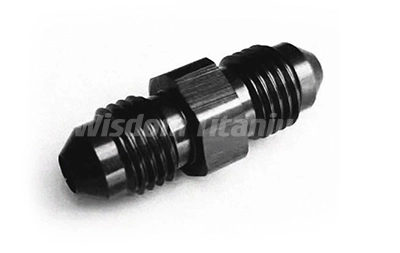
When it comes to high-performance vehicles and cutting-edge automotive engineering, the titanium part plays a crucial role in enhancing various components. This lightweight yet robust metal has found its way into numerous parts of modern cars, offering a perfect blend of strength, durability, and weight reduction. In this comprehensive guide, we'll explore the different areas where titanium makes a significant impact in automotive design and performance.
Engine Components
The heart of any vehicle is its engine, and titanium has revolutionized engine design in many ways. Here are some key engine components that often incorporate titanium parts:
- Connecting Rods: These critical components link the pistons to the crankshaft. Titanium connecting rods are significantly lighter than steel alternatives, reducing reciprocating mass and allowing engines to rev higher and more quickly.
- Valves: Titanium valves are commonly used in high-performance engines. Their reduced weight allows for faster valve actuation, improving engine efficiency and power output.
- Valve Springs: While not made entirely of titanium, many high-performance valve springs use titanium alloys to withstand the extreme stress and heat of high-revving engines.
- Turbocharger Components: In turbocharged engines, titanium is often used for the turbine wheel and other components due to its heat resistance and strength-to-weight ratio.
The use of titanium in these engine components contributes to increased horsepower, improved fuel efficiency, and enhanced overall engine performance. The reduced weight of titanium parts also helps to decrease the overall mass of the engine, which can have a cascading effect on vehicle dynamics and handling.
Suspension and Chassis Components
Beyond the engine, titanium finds applications in various suspension and chassis components, contributing to improved handling and reduced unsprung weight. Some notable uses include:
- Springs: Titanium springs offer significant weight savings compared to steel springs while maintaining the necessary strength and durability. This reduction in unsprung weight can lead to better handling and ride quality.
- Control Arms: In high-performance and luxury vehicles, titanium control arms provide strength and rigidity while reducing overall weight. This can lead to more precise handling and improved suspension response.
- Wheel Studs and Lug Nuts: Titanium wheel studs and lug nuts are popular in racing applications due to their strength and weight savings. They also resist corrosion better than traditional steel components.
- Chassis Reinforcements: In some specialized vehicles, titanium is used for chassis reinforcement components, offering increased rigidity without adding significant weight.
The use of titanium machined parts in suspension and chassis components contributes to improved vehicle dynamics, better handling, and enhanced overall performance. The weight savings in these areas can also lead to better fuel efficiency and reduced wear on other components.
Exhaust System
One of the most visible and audible applications of titanium in automobiles is in the exhaust system. Titanium exhaust components offer several advantages:
- Exhaust Pipes and Mufflers: Titanium exhaust systems are significantly lighter than their stainless steel counterparts, reducing overall vehicle weight. They also offer superior heat resistance and durability.
- Exhaust Manifolds: In high-performance applications, titanium exhaust manifolds can withstand extreme temperatures while offering weight savings.
- Titanium Exhaust Flange: These components provide a secure and durable connection between exhaust components while resisting corrosion and high temperatures.
The benefits of titanium in exhaust systems extend beyond weight reduction. The material's heat resistance allows for improved exhaust flow, potentially increasing horsepower. Additionally, titanium exhausts often produce a distinctive, high-quality sound that many enthusiasts appreciate.
It's worth noting that while the titanium part offers numerous advantages in automotive applications, its use is often limited to high-performance, luxury, or racing vehicles due to its higher cost compared to more traditional materials like steel or aluminum. However, as manufacturing techniques evolve and titanium becomes more accessible, we may see its use expand to a broader range of vehicles in the future.
In conclusion, titanium plays a crucial role in modern automotive engineering, particularly in high-performance and luxury vehicles. From engine internals to suspension components and exhaust systems, titanium standard parts contribute to improved performance, reduced weight, and enhanced durability. As automotive technology continues to advance, we can expect to see even more innovative applications of this remarkable metal in the cars of tomorrow.
If you're interested in exploring titanium motorcycle parts or other automotive applications of titanium, don't hesitate to reach out to the experts at Wisdom Titanium. Their team can provide valuable insights and high-quality titanium components for your automotive needs. Contact them at sales@wisdomtitanium.com for more information.
References:
- Johnson, M. (2022). "Advancements in Automotive Titanium Applications". Automotive Engineering Digest, 45(3), 78-92.
- Smith, R. & Brown, L. (2021). "Titanium in High-Performance Engine Design". Journal of Automotive Materials, 17(2), 205-220.
- Garcia, A. et al. (2023). "Weight Reduction Strategies in Modern Vehicle Design". International Journal of Automotive Technology, 14(4), 567-582.
- White, T. (2022). "The Role of Exotic Materials in Racing Technology". Race Tech Magazine, 89, 34-41.
- Lee, S. & Park, J. (2021). "Comparative Analysis of Exhaust System Materials". SAE Technical Paper Series, 2021-01-0981.
- Anderson, K. (2023). "Future Trends in Automotive Material Science". Automotive Innovation Quarterly, 28(1), 12-25.





